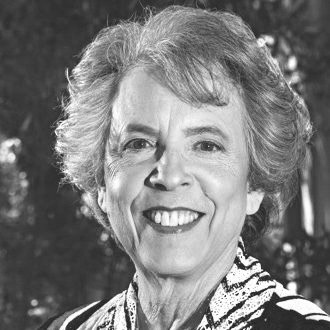This week’s Torah portion is called "Behar" because it begins "The Lord spoke to Moses behar (on Mount [Sinai]). Upon reflection, something seems out of order. We left Mount Sinai in the Book of Exodus.
Most of the laws in the Book of Leviticus were revealed in the Tent of Meeting. Why does the Torah portion suddenly shift back to Mount Sinai?
Rabbinic tradition explains the anomaly by asserting that the Torah isn’t chronological. But that answer doesn’t satisfy me. Why bring us back to Mount Sinai for this particular parsha?
Behar describes the seventh year as a sabbatical year when the land rests, and the year after the 49th year as the jubilee year when indentured servants can go free and the land returns to its original owner. These laws make it impossible for society to form rigid social classes where rich families will always be rich and poor families will always stay poor. Then, the Torah portion ends with an admonition to keep Shabbat, another cycle of seven. The parsha makes it clear that everything belongs to God: land, people, even time.
We read Behar at a time in the Jewish year when we are counting another cycle of seven: the omer. The omer was a measure of barley that was offered as a sacrifice after Passover at the beginning of the spring harvest. From that offering, our ancestors counted seven weeks until Shavuot, which marked the more important wheat harvest.
We’re not farmers any more. Rabbinic tradition de-emphasized the agricultural basis of Shavuot and focused instead on Shavuot as the day we stood at Mount Sinai to receive the Torah. The goal of the counting is to bring us to Shavuot; to stand again at Sinai, behar.
Counting the days between Passover and Shavuot reminds us that the freedom represented by Passover, freedom from oppression, is only the beginning. Freedom is not just freedom from — it is freedom for a purpose. That purpose is Torah. Torah teaches us that to be free is to be responsible, to understand that every choice matters. Torah teaches us that we live in a universe that makes claims on us.
What happened at Mount Sinai? The story isn’t so clear. Our tradition teaches us that we were all there, every Jew who ever was or ever will be, whether we were born as Jews or we chose Judaism. Some commentators believe that we heard God speak the Ten Commandments; others believe that we heard only the first two, because they are the only ones given in the first person. Still others believe that all we heard was the first word of the first commandment: "Anochi — I am." And that word revealed everything.
If we can hear "Anochi," if we really know that "God is," what else do we need? Because God is, everything else follows. When we experience the reality of God’s presence, our response must be to create lives worthy to be lived in the presence of God. If God is, then the universe makes a claim on us to respond in such a way as to create a world that reflects the presence of God in every dimension of our life.
There is another view of what happened at Mount Sinai. It is that all we heard at Mount Sinai was the first letter of the first word: alef — a silent letter. All we heard was Divine silence, or perhaps God’s breath. And as we breathe, we understand that God is in us as well.
What happened at Mount Sinai? Each of us heard God in our own way, and our lives are a response to how we understand what we heard.
That’s why we want to go back to Mount Sinai, year after year. We want to re-experience the divinity that is all around us. But it isn’t easy. We have to count, we have to work on ourselves, we have to move through the narrow places of slavery to be expansive enough to hear God’s call. And so we count the omer, seven weeks of seven days.
The mystical tradition imagines God unfolding in 10 emanations, seven of which flow into the world. Each of the weeks of the omer represents one of those dimensions of divinity, as does each day. The first day is the day of chesed (lovingkindness), in the week of chesed. The second day is the day of gevurah (discipline) within the week of chesed. As we count, we are challenged to refine ourselves by reflecting on those dimensions within ourselves, examining our own qualities of lovingkindness, discipline, balance, strength, humility, bonding and nobility. It is this spiritual work of preparation that enables us to go back to the mountain, to experience again the presence of God.
And if we do the work, after seven weeks of seven days, we are again on the mountain, behar. From this high place, we see the world from a different perspective and understand that everything is part of God, including land, people and time. Behar, we again hear God challenging us to create lives worthy to be lived in God’s presence, and to create a society that reflects that presence.
Laura Geller is rabbi of Temple Emanuel of Beverly Hills.























 More news and opinions than at a Shabbat dinner, right in your inbox.
More news and opinions than at a Shabbat dinner, right in your inbox.